

This series presents the traditional vocal skill of the Buddhist praise. Accompanied by traditional Chinese instruments, the aesthetics of the oriental vocal music is displayed. The harmonious chorus allows the listener to feel a state of inner solemnity. The beauty of religion music is wonderfully demonstrated.
| Praise Amitabha Buddha TCD-2101 *chanted by Master Guang Sheng & Master Guo Hui "The music definitely has Oriental spiciness, but the melody, sung by a male chorus, is very engaging and easy for Western ears to assimilate and floow." |
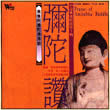 |
| Praise of Avalokitesvara Bodhisattva
TCD-2102 *chanted by Master Guang Sheng & Master Guo-Hui The recitation of the Praise of Avalokitesvara Bodhisattva is selected from The Avalokitesvara Bodhisattva's Holy Name in the special edition of The Mental Songs of Reciting the Name of Buddha which was composed in Singapore. Masters Guang Sheng and Guo Hui both sang forth the utmost pity and compassion of Avalokitesvara Bodhisattva who relieve living being's sufferings by seeking the source of voice and sound. |
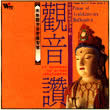 |
| Praise of Bhaisajya Buddha
TCD-2104 *chanted by Shanghai Sanskrit Chorus The Bhaisajya Buddha (the god of healing) bestows various kinds of dharma medicine to cure living beings' sickness and to eliminate obstacles caused by evil deeds, so that they could vigorously cultivate the Buddha Way with bodies and minds harmonized. In this collection, the solemn praise fully expresses the sincere respect to Bhaisajya Buddha. |
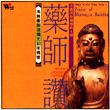 |
| Praise of Sakyamuni Buddha
TCD-2105 *chanted by Shanghai Sanskrit Chorus Born as a human being, Sakyamuni Buddha attained Buddhahood after having witnessed all sorts of pains and sufferings in this earthly world. The music reminds the listeners of the great achievement of Sakyamuni Buddha who preached the dharma in the world for ferrying over living beings and for relieving them from their sufferings. |
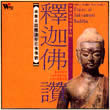 |
| Six-World Mantra of Avalokitesvara
TCD-2109 The belief in Avalokitesvara Bodhisattva is prevalent in Asian, while the " six-word mantra of Avalokitesvara" has been propagated in the whole world. Compared with other similar editions, this one is unique in that it adopts the pellucid Tibetan or Mongolian musical style with rhythmic recitation of the mantra. When reciting this mantra, many are able to achieve inconceivable virtue. |
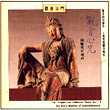 |
| The Hymn of "Chapter of the Universal Gate"
TCD-2110 The "Saddharmapundarika (wonderful dharma) Sutra" is one of the most important texts that was adopted by the Buddha to instruct the living beings how to achieve Buddhahood. The Chapter of the Universal Gate is the 25th chapter of the sutra, which depicts the events of Avalokitesvara Bodhisattva's saving and protecting the living beings. The album is a selection of verses in the chapter, combined with newly created tunes that brings tranquillity and peacefulness. |
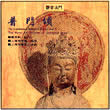 |
| Chant of Repentance TCD-2111 The term "repentance" in Buddhism originates from the Sanskrit "Ksamayati" that initially means forgiveness and tolerance. The Verse of Repentance is the common verse that Buddhists recites for self-reflection, cultivation, or repentance of one's sins before the Buddha. |
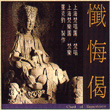 |
| Sound from the Cosmos TCD-2112 "Om Ma Ni Pa Mei Hum" literally means developing the compassion of the enlightened beings, based on Buddhist scriptures. With modern interpretations, it functions to calm down a restless mind. The powerful chanting sound of this album creates an exalted backdrop to enfold you in an aura of enchantment, reaching a state of harmony in the inner world. |
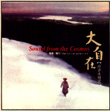 |
| Sound of Mercy TCD-2113 Mantra is like a wish-fulfilling gem that awakens the subtle energy of the liberated mind. In the first section of this album, FAN Li-bin blends the traditional Tibetan mantra chanting with the harmonious choir to enrich the single rhythm of chanting. In the second half, FAN employs his unique way to chant the mantra with seven different voice parts, accompanied by the sound of drums and bells. |
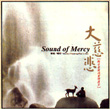 |
| Sound of Redemption TCD-2114 The sound of mantra can still the mind and senses, relax the body, and achieve a state of tranquillity. It is said in Buddhist scriptures that people could purify their past and present negativity when chanting the mantra "Om Pramani Dani Svaha." |
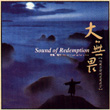 |